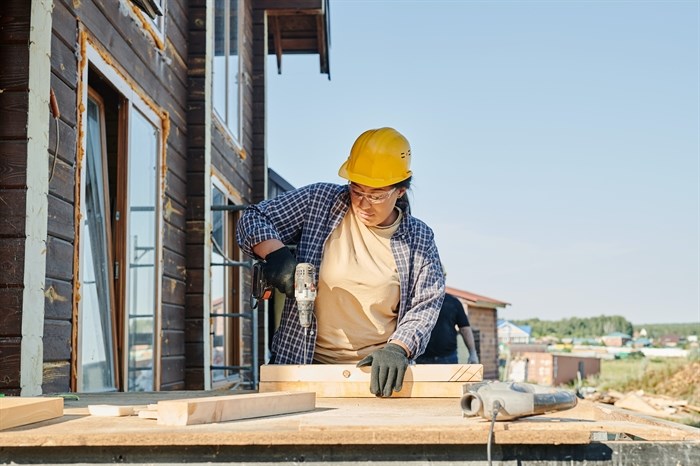Governments need to 'serious steps' to tackle housing crisis: Accountants
Housing starts, with the exception of Kelowna, fell in the first half of 2022, showing governments aren’t doing enough to break a housing crisis, according to B.C. chartered accountants.
Starts fell in Canada by 7% and B.C. starts fell by 15% — though Kelowna grew 49% compared to the same period the year before, according to CMHC.
READ MORE: Construction taking a hit in Kelowna but still booming
But those stats don’t tell the full story of what’s going on in housing and how government is failing to deal with the growing crisis.
“They say they want to take steps to increase affordable housing but the steps they are taking are not getting us anywhere,” Karen Christiansen, a Kelowna accountant speaking for the Chartered Professional Accountants of B.C., told iNFOnews.ca. “Either they have to re-evaluate the steps they’re taking or they have to take some serious steps to fix the issue of housing.”
She cited a 2020 study that showed taxes made up 16-31% of the cost of new housing in the Central Okanagan.
“Taxes are the highest on new housing at the most affordable end of the spectrum – up to 31% of the total cost,” Scott Butler of Kelowna’s Highstreet Ventures Inc. wrote in the report.
It was based on input from eight local builders and consultants.
That share of the costs would likely be higher today, based on increases in charges to developers in many cities since 2020.
The report comes with some concrete recommendations for change, like the federal government waiving the sales tax on housing below certain threshold. It suggested that be $320,000.
That would save $10,000 on a typical rental unit and cost the federal government $530 million.
Eliminating the provincial sales tax would save $6,700 and cost the province $80.4 million. Cutting out the property transfer tax could save another $4,400.
Cities charge fees to developers, that are passed on to buyers and renters, based on the number of housing units, not by size. That means the same is paid on a 500 square foot micro-suite as on a 5,000 square foot luxury home. Butler suggested changing the formula so it's based on size instead.
The report doesn’t estimate the cost savings of doing that since every city has different rates. Those can be tens of thousands of dollars per unit.
READ MORE: Okanagan home builders want city council to focus more on affordability than aesthetics
Butler's recommendations are echoed by the Chartered Professional Accountants of B.C., which also calls for the development approval process to be sped up.
While the City of Kelowna isn’t too bad, clients tell Christiansen that most of the more affordable single-family sites are in West Kelowna and Lake Country, which are much slower in processing applications, especially Lake Country, she said.
That slows the approval process and, therefore, adds to the cost.
She’s not aware of any coordinated effort to get the three levels of governments working together better.
Even though this latest CMHC data shows an increase in housing starts in Kelowna (it doesn’t break out any other cities in the Thompson-Okanagan), that’s far short of what’s needed to make housing anywhere near affordable for many people, according to a report it put out in June.
That indicated the pace of housing construction has to jump by about 300%, not the 49% increase for Kelowna in the first six months of the year.
READ MORE: Pace of housing construction needs to triple in Thompson-Okanagan
The average price of a B.C. home also needs to drop by $268,000 to $679,000 to reach the affordable range in B.C.
That’s not likely to happen because there’s such a high demand, Christiansen said. But more affordable housing going forward might move it in the right direction.
While all these suggestions may sound expensive, the cost of doing nothing is also huge.
“There are so many issues that go along with housing,” Christiansen said. “The societal costs is staggering, when you look at the homelessness population and the fact that people can’t afford to put a roof over their heads. When you look at the mental health crisis that we keep hearing about in our communities, all of those things add to the instability of the workforce, the instability of everybody’s mental health. So, I would argue, the societal costs of not having a place people can call home is significant.”
To contact a reporter for this story, email Rob Munro or call 250-808-0143 or email the editor. You can also submit photos, videos or news tips to the newsroom and be entered to win a monthly prize draw.
We welcome your comments and opinions on our stories but play nice. We won't censor or delete comments unless they contain off-topic statements or links, unnecessary vulgarity, false facts, spam or obviously fake profiles. If you have any concerns about what you see in comments, email the editor in the link above.




